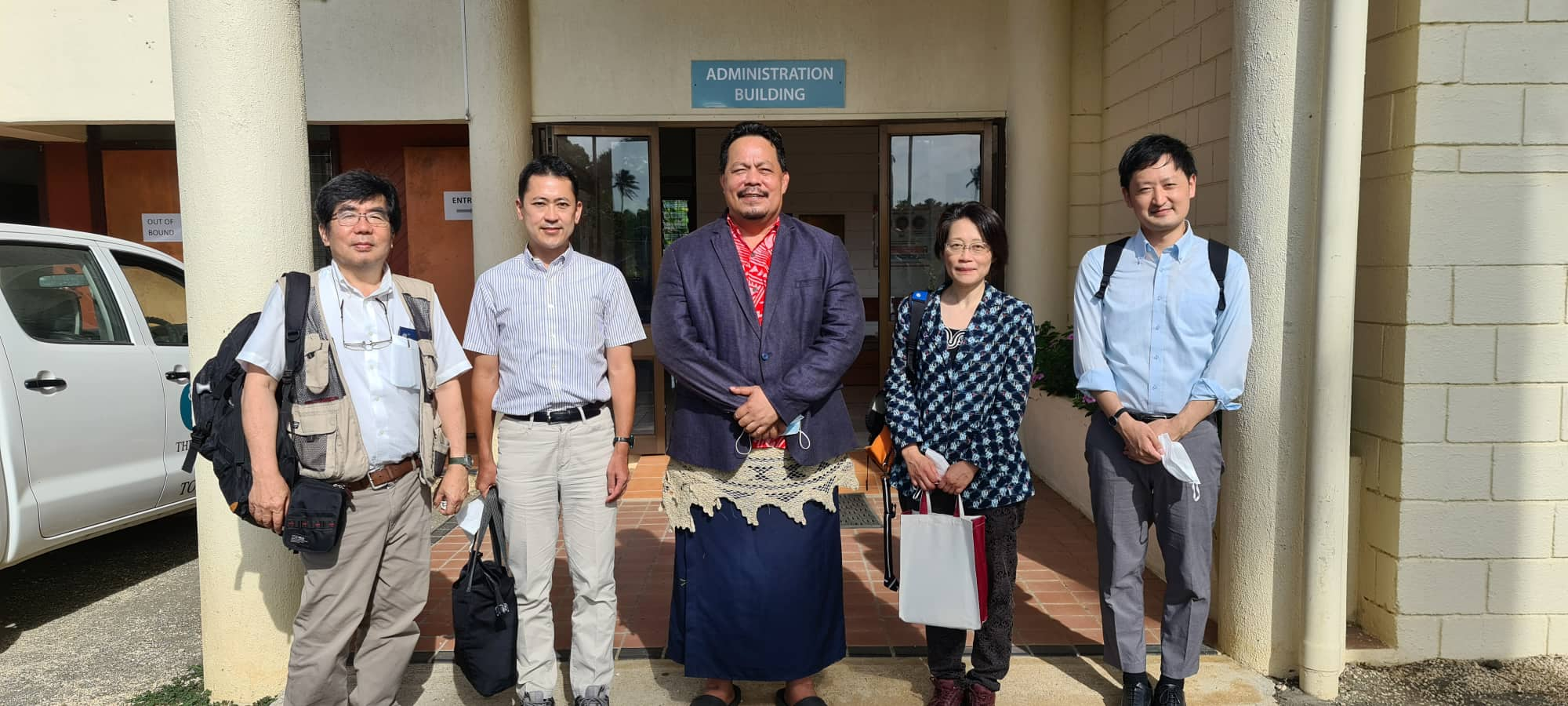Related News

A team from the Japan International Cooperation Agency’s (JICA) Science and Technology Research Partnership for Sustainable Development (SATREPS) recently visited The University of the South Pacific (USP) Tonga Campus to negotiate their participation in research on Volcanic eruptions.
The team included Associate Professor Mie Ichihara, a Volcanologist, from The Earthquake Research Institute of the University of Tokyo, Associate Professor Mie Ichihara and Fukashi Maeno who are from the Earthquake Research Institute, University of Tokyo, Hiroshi Inoue who is a visiting Researcher from the National Research Institute for Earth Science and Disaster Resilience,
Yuta Makabe from JICA and Mafoa Penisoni from the Tonga Geological Services.
The team visited Tonga as a member of a survey team from Japan, part of JICA for the gigantic Hunga-Tonga Hunga-Ha’apai (HTHH) eruption, and they are now preparing for a JICA project in response to the eruption with Tonga, Fiji, and Vanuatu.
Lead researcher, Associate Professor Mie Ichihara said a large eruption is rare but may have a significant influence once it occurs.
“This project aims to effectively use what we learned from the recent huge volcanic event to reduce disaster risks of such eruptions,” she added.
Professor Ichihara also highlighted that developing the regional collaboration network through the project would complement weak organisational structures and staffing and capacity shortages of the Southwest Pacific countries against widespread volcanic disasters.
She said those who gained experiences and skills from this project would also contribute to reducing other natural hazards that the region is exposed to and developing the next-generation human resources.
The purposes of the project are as follows;
* Learning from the HTHH volcanic tsunami disasters in each country, including Japan: What happened. What could have happened? What to improve?
* To understand the 2022 HTHH eruption mechanism: Why so huge?
* Understanding hazards related to the volcanic activity of the area and general features of shallow-water eruptions
* Capacity development to monitor signals before and during eruptions and adequately interpret them
* Improve the shortage of human resources and public awareness of volcanic hazards.
USP Tonga Campus Director, Dr Robin Havea said he was happy when the team contacted them and eventually visited the Campus.
“There are other tertiary institutions in Tonga, but they have chosen USP Tonga Campus as a research partner. More importantly, this would give an opportunity for our science students to be part of something big with hands-on experience,” he added.
Dr Havea expressed the Campus’s willingness to participate in this project, foreseeing possible benefits to Science and Geography Students, and also to the Campus in terms of resource upgrades and donations from this project.
However, the Campus Director also made it clear that Research Protocols must be fulfilled through the Research Office in Laucala, USP before the actual participation of the Campus.
Associate Professor Ichihara pleasantly received the response from the Campus Director emphasising that this was just the negotiation and recruiting process. The team will travel to Fiji and Vanuatu to complete all negotiations before the designing of the MOU and signing of other formalities.
The project is expected to start in 2023 and run for five years (2023- 2028)